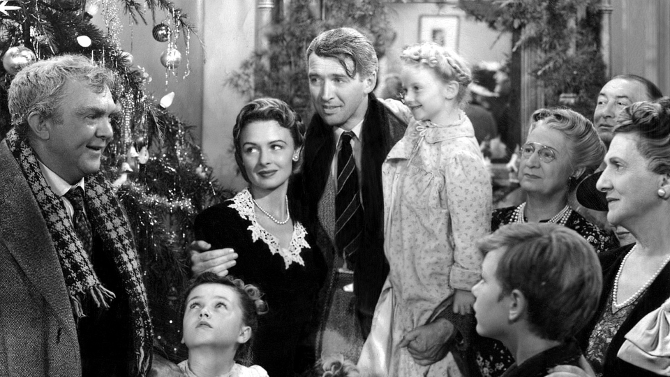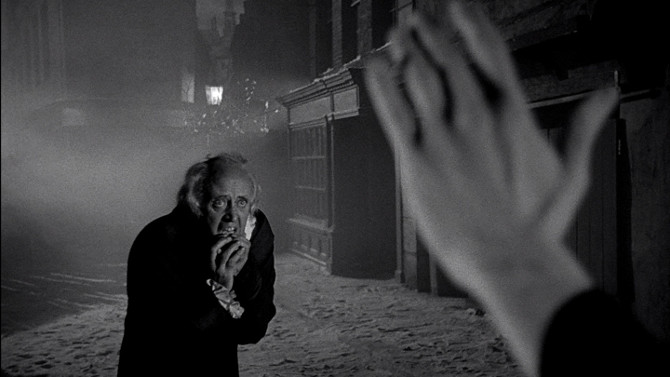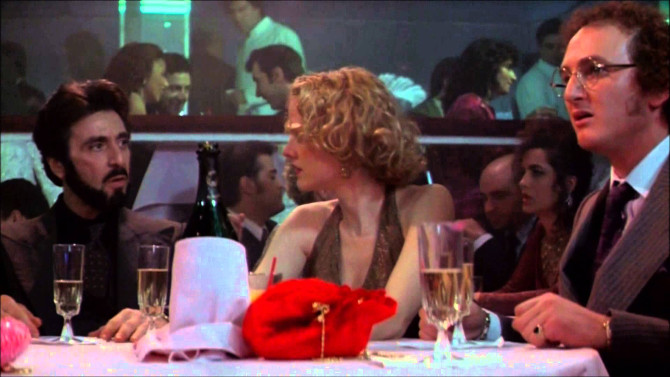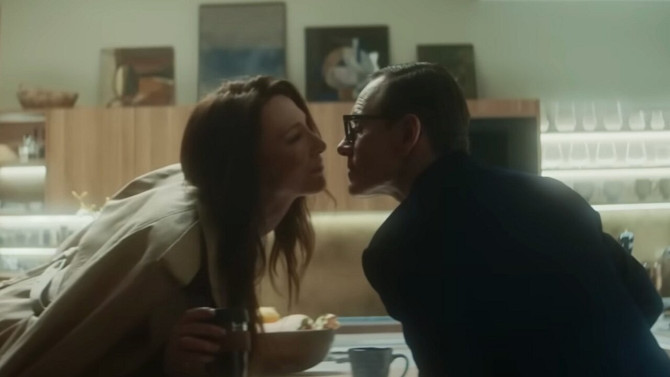
An Attaché Case
In 2025, dare I say that it’s nice to be highlighting a film made for mature audiences. Avoiding the pratfalls of sequels, remakes, comic book movies, and overly costly bombast, Black Bag, written by David Koepp (Mission: Impossible) and directed by Steven Soderbergh (Traffic), is most easily described as an old school spycraft feature. Opening with an extended tracking shot of spy George Woodhouse (Michael Fassbender) making his way through a happening nightclub in London, his contact soon informs him that there is a rat leaking some sort of tech software named Severus from within the agency. If there is one thing Woodhouse despises, it’s a liar, so he invites all of the suspects to a dinner party to try to get to the bottom of it.
-
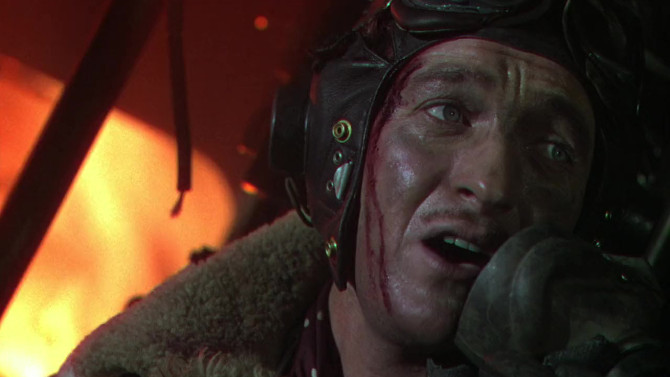
Stairway to Heaven
A Matter of Life and DeathJanuary 13, 2017Born out of the horrors of World War II, famed British filmmakers Michael Powell and Emeric Pressburger released A Matter of Life or Death one year after the conclusion of the hostilities. Cleverly evoking the complexities of the era, the writer/director team fuse together multiple themes that, in some way, make sense of love, life, death, Heaven and the wounds that soldiers suffered during the traumatic affair. Beginning on a grand celestial scale, we are brought forth to an intimate, heartbreaking moment when British Royal Air Force Squadron Leader Peter Carter (David Niven), after ordering his crew to bail out (letting them know that he will soon follow), reveals to an American radio operator, June (Kim Hunter), that his plane is crashing and he has no parachute. His smooth vocals, grievous situation and stiff upper lip attitude leave the woman distraught, and the two fall in love by way of the irregular circumstance. Leaving his dead friend Bob (Robert Coote) on the plane, Carter leaps into the pea soup thick fog just off the English coastline.
-
Star Pick with Sean Kenney
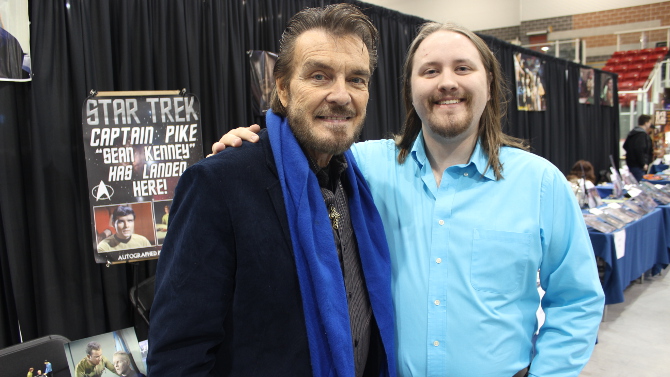 It’s a Wonderful Life is Heaven-SentIt's a Wonderful LifeDecember 23, 2016
It’s a Wonderful Life is Heaven-SentIt's a Wonderful LifeDecember 23, 2016It is hard to fathom that Frank Capra’s classic feature It’s a Wonderful Life turns 70 this year (on December 20th to be exact). A movie of vital importance to millions of people the world over, it has not only become a Christmas staple, but also a yuletide tradition for many a family, though this was not always the case. Getting off to a more than sluggish start (losing major money at the box office), it was not originally a hit (or believed by most critics that it would ever leave an impactful mark on the spools of film history). In a miracle befitting of the fantasy drama, the tides for the downtrodden film turned around in the 1970s (thanks to a fortunate copyright lapse), finding a more than accepting audience on the television screen. Taking off, it has gained the traction director Capra once had hoped for, for his story – though he never truly expected it to get a second chance. He actually said (to The Wall Street Journal in 1984): "It’s the damnedest thing I’ve ever seen. . .The film has a life of its own now and I can look at it like I had nothing to do with it. I’m like a parent whose kid grows up to be President. I’m proud. . . but it’s the kid who did the work. I didn’t even think of it as a Christmas story when I first ran across it. I just liked the idea."
-
Star Pick with Kim Campbell
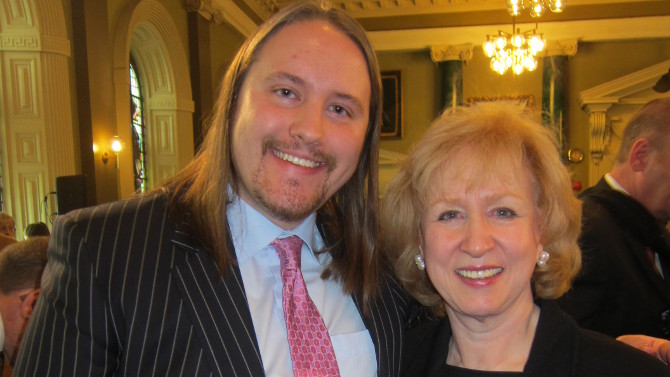 Here’s to Christmas SpiritsA Christmas CarolDecember 13, 2016
Here’s to Christmas SpiritsA Christmas CarolDecember 13, 2016A little while ago, I was fortunate enough to be able to interview The Right Honourable Kim Campbell, the 19th Prime Minister of Canada (and to date, the only female to land the top job), about her favourite film. Transporting me to ‘the most wonderful time of the year’, she illuminated me as to her Christmas program watching traditions. She explained that, each time December comes around, she makes time to gather round the television with her entire family and watch, back to back, The Muppet Christmas Carol starring Michael Caine, followed by the classic 1951 version of A Christmas Carol, with Alastair Sim taking on the legendary role of Ebenezer Scrooge. She lit up talking about her family custom, clearly cherishing the memories made by gathering the family to watch these two festive films. As I am only able to review one film as part of the Star Picks section, I will be looking at the 1951 incarnation of the Charles Dickens’ tale. Make sure to track down the Muppet version as well to get the full Prime Ministerial experience. Arguably the most iconic version of the miser, Alastair Sim has been etched in the collective psyche as the perfect Scrooge. With his receding hairline, bulbous eyes and curmudgeonly attitude, it is easy to buy him as a true hater of all things Christmas.
-
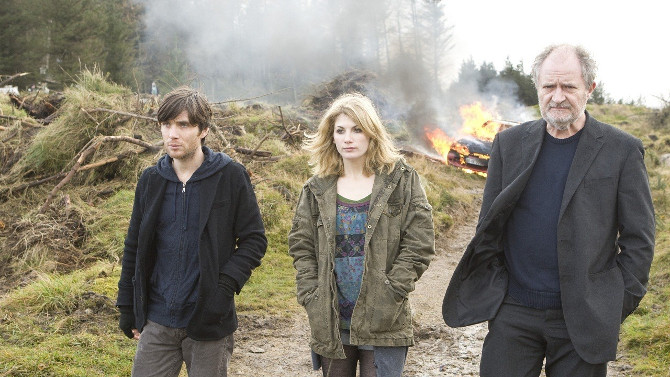
Perrier a Worthwhile Bounty for Audiences
Perrier's BountyDecember 11, 2016Narrated by the Grim Reaper (Gabriel Byrne), 2009's Perrier’s Bounty is an intriguing Irish film that mixes action and comedy within a crime story (all centred around a complex father/son relationship). Written by Mark O’Rowe (who also scribed the entertaining 2003 flick Intermission) and directed by Ian Fitzgibbon, they thrust us into the life of protagonist Michael McCrea (Cilian Murphy), a flawed, complicated figure who just happens to be sleeping in the afternoon while two thugs, Ivan (Michael McElhatton – Roose Bolton in Game of Thrones) and Orlando (Don Wycherley), sit on his couch eating his pistachios. Henchmen to a dangerous gangster, Darren Perrier (Brendan Gleeson), the duo remind the recently woken man that he owes the crime boss a hefty sum that must be paid in four short hours. Surrounded by an ever-complicated life, his female best friend Brenda (Jodie Whittaker), who lives one floor down, is struggling with her longtime boyfriend Shamie (Pádraic Delaney), while his father Jim (Jim Broadbent) arrives out of the blue and states that he is dying of cancer – the two have not spoken in some four years. Pushing them to the periphery while he deals with the more pressing problem of Perrier, he reaches out to a local drug dealer, Clifford (Domhnall Gleeson), as the man knows every low life in the city of Dublin. Getting directions to The Mull (Liam Cunningham – Davos Seaworth in Game of Thrones), a loan shark, he petitions him for some cash. Having none of it, instead, The Mull invites him to partake in a criminal venture with his buddy Dinny (Breffni McKenna), and Michael, desperate for any solution, agrees.
-
Star Pick with Christian de la Cortina
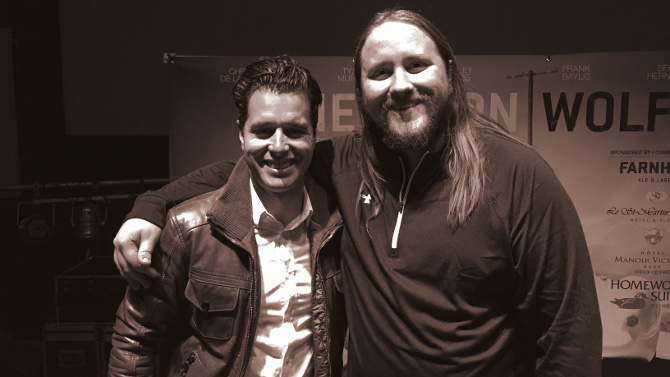 Show Me the WayCarlito's WayDecember 6, 2016
Show Me the WayCarlito's WayDecember 6, 2016Following the special screening of the Canadian independent film Generation Wolf at the historic Port Theatre in Cornwall, Ontario, I sat down with filmmaker Christian de la Cortina – who co-wrote, produced, directed and starred in the entertaining crime flick. Cortina, who works out of Quebec, has had a fruitful start to his career, dabbling in many French language television series and miniseries, including La Marraine, 19-2, Mon Ex à Moi and O’, as well as procuring roles in American productions being filmed in La Belle Province, including last year’s highly touted Academy Award nominee Brooklyn. 2008 was a watershed year for the man, as he released his first feature film – Transit, which he also produced, directed, wrote and starred in. Seeing it as an opportunity to concoct intriguing roles for himself and others (as he did not want to be placed in a position where he may only receive similar roles throughout his career – in other words, typecast), Generation Wolf can be seen as a successful extension of that plan – as it depicts an engaging story that is chock full of richly drawn characters.
-
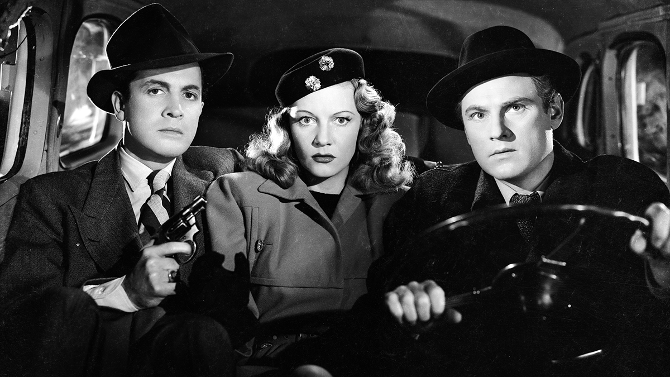
Confessions of a Fatal Femme
DecoyNovember 30, 2016Taking the rare angle of having the femme fatale be the voice-over narrator, the 1946 film noir Decoy, directed by Jack Bernhard, does a lot with the little budget it had. Perhaps the most brutal dame of them all, Margot Shelby (Jean Gillie) is shot at the very beginning of the story, wounded by a then unknown assailant. It is at this point that she recounts her sordid tale. Honey to a rough and tumble aging gangster, Frankie Olins (Robert Armstrong), the man has been placed behind bars following a robbery – which left a guard dead and the thief four hundred thousand dollars richer (which he hid before he got caught). Soon to be sent to the gas chamber, he still has hope that his girl, along with a gangster associate, Jim Vincent (Edward Norris), will find a way to help him escape his doomed fate. Vincent, already short tens of thousands in aiding his fellow hoodlum, is not eager to throw more dough his way.

